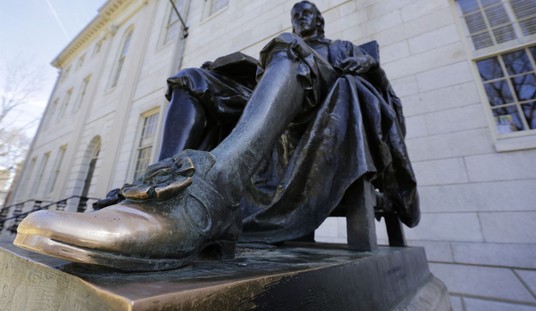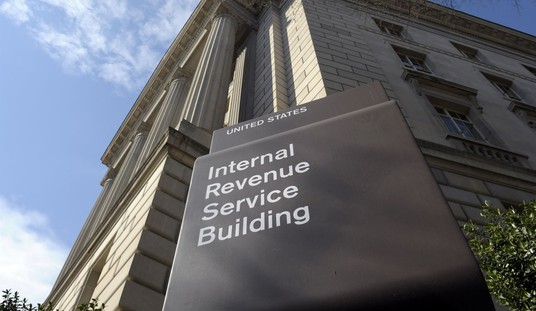The remaining #NeverTrump folk, the #NeverHillary folk and the Republican Establishment are still licking their wounds after seeing the primary electorate whittle down the best field Republican presidential candidates to Donald Trump. As the mourning continues, some 2020 contenders are already hard at work preparing for the post-Trump political world–the 2020 presidential campaign.
That’s right. It’s still June 2016. The 2016 Election is still five months away, the Republican and Democrat national conventions won’t nominate their candidates until next month. Four and a half years out the 2020 presidential campaign is underway. And you thought the 2016 Presidential campaign began way to early when Sen. Marco Rubio was in Iowa headlining a birthday fundraiser for Governor Terry Branstad before the 2012 election was in the books two weeks.
As the supporters of the losing 2016 presidential candidates work their way through the stages of grief, Alex Isenstadt has anointed House Speaker Paul Ryan, Gov. Scott Walker, Senators Ted Cruz, Marco Rubio, and Ben Sasse and Congressman Tom Cotton as 2020 contenders. He correctly notes that the first order of business of the 2020 election is trying to solve the conundrum that is The Donald–the Republican presumptive nominee. That is a critical and tricky matter. As Isenstadt correctly writes, it could make or break a 2020 presidential campaign:
It’s a complex calculation. Whether they choose to support Trump or to oppose him — or something in between — future Republican candidates could find themselves explaining their decision for years to come.
The pitfalls are obvious: Throw your support to Trump, and be tied to him. Buck him, and risk turning off his supporters.
Isenstad groups his field of six 2020 GOP presidential contenders into three categories, Never Trump, Maybe Trump and on the band wagon. The Never Trumpers are Cruz and Sasse. Cruz hasn’t been shy about his intent to run again in 2020:
Just days after exiting the primary, the Texas senator — who continues to regularly confer with his top campaign aides — released a nostalgia-filled video that recounted emotional moments from the campaign before concluding: “To be continued.”
Cruz is already taking steps to expand his base, meeting with establishment power players who gave him the cold shoulder. Last month, Cruz attended the Kentucky Derby as the guest of Joe and Kelly Craft, major Republican Party donors who backed Rubio. The Crafts also happen to be close to Senate Majority Leader Mitch McConnell, a Cruz nemesis.
As for dealing with Trump, Cruz still hasn’t endorsed The Donald. During a May 27 interview, Cruz said he was still “looking and listening” to the presumptive nominee. He then went on to say that he was “deeply concerned for our country” and that voters would have to go through “prayer” before deciding whether Trump has earned their vote.
This works well, for now. But will it work at the Republican Convention with such a large number of Cruz delegates? Will Cruz be able to remain non-committal on backing Trump come convention time? I think not. Not with the push to get Cruz-supporting delegates on the platform committee.
Sasse, on the other hand, has been very clear about his Never Trumpness. He has “said outright that he won’t vote for Trump and has called for a third-party candidate to enter the race.” Isenstad quotes Eric Fehrnstrom, who was senior adviser on Mitt Romney’s 2012 bid on this point:
The fact remains, if you are not for Trump, and Hillary Clinton wins, then you run the risk of taking the blame for handing the election to the Democrats. That’s going to be one giant albatross hanging around your neck.
The Maybe Trumpers are Walker and Cotton. Walker also made it clear he is no fan of Trump by backing Cruz. But Walker has also said he would support Trump if he’s the nominee. As a vice chairman of the Republican Governors Association, Walker is raising money for governors and getting to know the donors who could be helpful to him in a 2020 campaign. He’s likely to be RGA chairman during the 2018 election, when 36 governors races will be on the ballot. This has always seemed like a good way to lay a foundation for a presidential campaign, but it didn’t work well for Rick Perry or Chris Christie.
Cotton has also indicated he’ll support Trump, if Trump’s the nominee. Nevertheless, Cotton hasn’t gone out of his way to praise or criticize Trump. Like Cruz, Cotton has been blatant about his presidential aspirations. Since he was elected to the Senate in 2014, he’s traveled to Iowa, New Hampshire and South Carolina and plans more such trips. Cotton is also expanding his political team and launched a new political action committee, the Republican Majority Fund.
Then there are Rubio and Ryan, both of whom got on the trump band wagon and endorsed Trump only to strongly criticize Trump for his disparagement of Judge Gonzalo Curiel. After Rubio lost the Florida presidential primary he said he was done with politics. But in the CNN interview during which Rubio vowed to support Trump, he also indicated he was open to running for president again. He has also kept his donor network intact. Isenstad considers Ryan to be a contender based upon the Speakers efforts to maintain his “Republican” agenda. I consider Ryan a contender because Ryan says he is not.
There you have it. The 2020 presidential campaign is on.














Join the conversation as a VIP Member